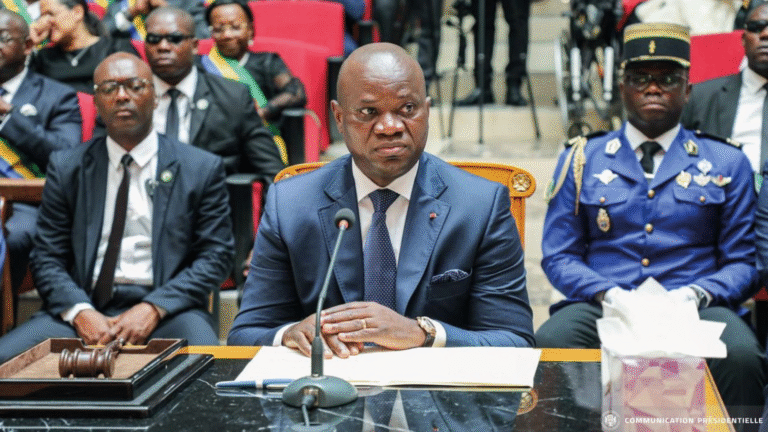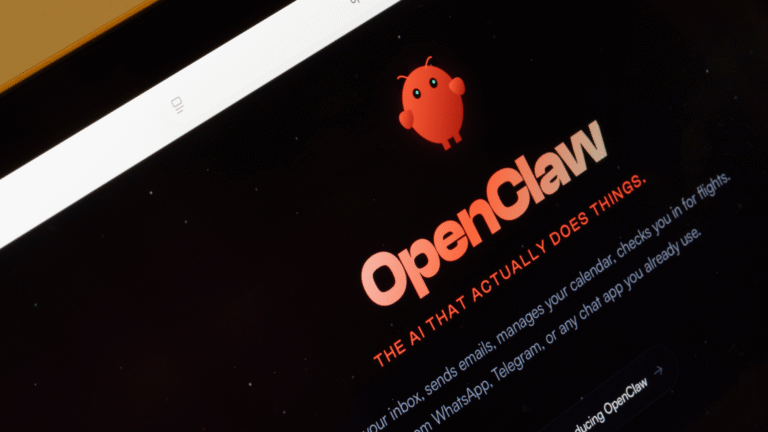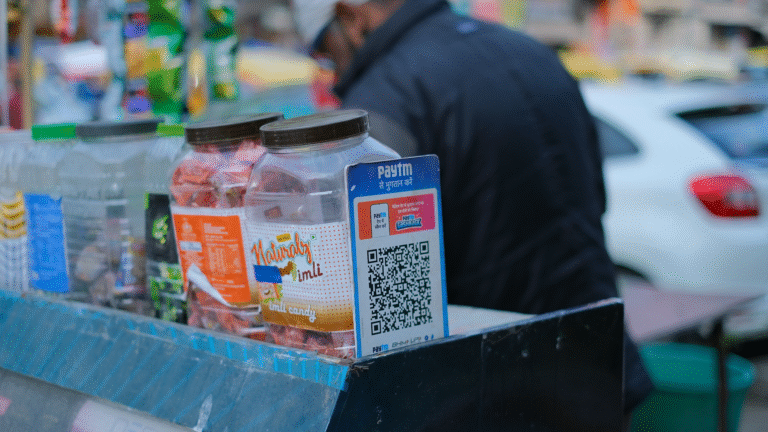Good morning, readers!
In North Korea, the totalitarian regime launched its first automated banking hotline to support account inquiries as it pushes away from cash and toward widespread electronic payments. Framed as modernization, the hotline provides basic account services but ultimately expands state surveillance and control. Nearly all North Koreans now receive wages into card-linked bank accounts rather than receiving cash, leaving savings and financial activity exposed to the regime.
Meanwhile, in Russia, the State Duma approved amendments to Russia’s foreign agent law that allow criminal charges after just one violation, down from two in a year. Nearly 1,000 individuals, groups, and outlets have already been branded “foreign agents” in Russia, a designation used to stigmatize and suppress dissent. The new rule further weaponizes the law as a tool of financial repression, threatening journalists, activists, and civil society with harsher penalties.
In freedom tech news, Cashu developers are testing a new privacy upgrade for ecash using Oblivious HTTP (OHTTP). This would prevent mints (custodians of ecash) from observing a user’s IP address. If adopted, this would make it significantly harder for authoritarian actors to track ecash users, reinforcing Cashu’s value as a discreet freedom tool for dissidents.
We end with a chilling dispatch from Russian independent media outlet Meduza, which collected testimonies where Russians describe daily life on the Kremlin’s new “whitelist” Internet, which allows access only to state-approved sites.
Now, let’s explore the full news.
Global News
North Korea | Automated Banking Hotline Deepens Surveillance
North Korea launched its first automated banking hotline, the “183 service,” to handle an increase in account inquiries driven by the totalitarian regime’s shift from cash to electronic payments to better control the informal economy. The hotline provides menu options for issues such as lost cards, locked accounts, mistaken remittances, balance checks, and transaction history. Previously, North Koreans had to visit bank branches in person for support. This rollout supports a state policy requiring employers to deposit wages into card-linked bank accounts rather than paying in cash. Nearly all adults now use this system. It expands the regime’s capacity to monitor and control financial activity, suppress informal markets, and limit financial freedom. But deep distrust persists, as North Koreans know that assets in banks remain exposed to seizure and surveillance by officials.
Russia | Amends Foreign Agent Law with Tougher Penalties
Russia’s State Duma passed a bill making it easier for Russian officials to prosecute individuals and organizations branded as “foreign agents.” If signed into law by dictator Vladimir Putin, a single violation of Russia’s foreign agent law (which previously required two breaches in a year) would be enough to warrant criminal charges. Foreign agent laws are a standard tool of authoritarian regimes, used to stigmatize independent media and restrict dissent by labeling anyone with international ties or support as a “foreign agent.” Nearly 1,000 individuals, groups, and outlets (including The Moscow Times, which is reporting on the matter) are already labeled as foreign agents in Russia. The new bill risks further weaponizing the law as a tool of financial repression, deepening the subjugation of journalists, activists, and civil society.
Togo | Digital Protests Against Gnassingbé Dynasty
Rising electricity prices, arrests of dissidents, and a new constitution allowing President Faure Gnassingbé indefinite re-election sparked protests in Togo this summer that were violently suppressed by police, who also conducted widespread and frequent financial repression. Now, Togolese citizens and activists have taken their efforts online to circumvent the physical repression. The June 6 Movement (M66) is a leaderless initiative launched by four citizens in exile and advised by Togolese activist Farida Nabourema. It uses online platforms to coordinate peaceful civil disobedience, amplify voices silenced at home, and rally international support for democratic change. Hundreds of Togolese diaspora have joined the movement. “The next step is to prepare for the eventuality of the regime cutting off Internet access completely,” Nabourema said. She encourages those inside Togo to use tools like Bitchat for offline communications via Bluetooth.
Nigeria | CBN Warns of Rising Currency Costs Amid Naira Abuse
Nigeria’s central bank launched a nationwide campaign urging citizens to handle the local naira currency with more care. Regime officials warn that careless practices like tearing, spraying at social events, and hoarding naira notes are raising the costs of printing the currency. In 2024 alone, the Central Bank of Nigeria (CBN) spent 315 billion naira ($210 million) on issuing currency, a 300% increase from the previous year. Officials described the campaign, “Naira Our Pride: Handle with Care,” as both a financial necessity and a matter of national dignity. They also encouraged Nigerians to adopt alternative payment methods to lessen the pressure on cash circulation. The focus on physical notes masks deeper structural issues: repeated devaluations of the naira, rising food prices, and deepening corruption. These realities, not careless note handling, are what have shattered confidence in Nigeria’s currency.
Saudi Arabia | Crown Prince Orders Rent Freeze in Riyadh
In Saudi Arabia, Crown Prince Mohammed bin Salman has ordered a five-year freeze on residential and commercial rents in the capital of Riyadh. This follows a sharp rise in rent prices in recent years, a trend that the policy aims to curb. Violations face steep financial punishments. Property owners who violate the freeze risk fines of up to a year’s rent plus compensation for tenants. And whistleblowers can earn 20% of any fines collected. While billed as relief, rent freezes are a form of price control that can often yield adverse effects. Property owners may reduce upkeep, shift investments away from housing, or demand informal payments to compensate for the loss of income. This can create shortages and deteriorating conditions, making it disproportionately harder for new or lower-income residents to find affordable housing amid the backdrop of authoritarian rule and immense digital repression.
Recommended Content
‘The whole country will feel it soon’: Meduza’s Russian readers on life inside the Kremlin-approved Internet
In this article, independent Russian media outlet Meduza gathered testimonies from Russians now living under the Kremlin’s new “whitelist” Internet. Widespread mobile access has returned after months of shutdowns, but only to state-approved sites. The system is a permanent narrowing of online content and communications. According to testimonies, banking apps, Wikipedia, Google, and independent media remain inaccessible, forcing people to rely on patchy public Wi-Fi and VPNs as workarounds. Many fear this is becoming the new norm across Russia, ingraining digital repression into everyday life. Read it here.
Bitcoin and Freedom Tech News
Research | Daniela Brozzoni Analyzes Bitcoin Node Fee Filter Settings
Bitcoin Core developer Daniela Brozzoni published new research on Bitcoin’s transaction relay policies after scanning nearly 30,000 full nodes (computers running the Bitcoin software). Her study focused on fee filters, which set the minimum fee rate at which nodes will relay unconfirmed Bitcoin transactions. She found that most nodes continue to use Bitcoin Core’s long-standing default of 1 sat/vB. About 4% use 0.1 sat/vB, the new default in the upcoming Bitcoin Core 30.0 release. Roughly 8% of nodes didn’t respond. For dissidents and everyday users, fee rate policies matter for accessibility. As market demand for blockspace increases fees, certain groups will be effectively priced out of the network onto second layers. Research like Daniela’s helps developers and users better understand how Bitcoin’s infrastructure evolves and how to keep it open to all.
Cashu | Draft Proposal Adds Oblivious HTTP (OHTTP) for Stronger Privacy
Ecash developers are working on integrating OHTTP into Cashu, with a first draft of the proposal already in progress. Cashu is a bitcoin-backed ecash protocol that enables custodial, private, and low-cost bitcoin payments using entities called mints (ecash custodians). OHTTP (adopted in other privacy-focused Bitcoin projects, such as Payjoin) enables a user to send encrypted requests through a gateway, preventing a Cashu mint from seeing the sender’s IP address. The gateway relays the request and response without revealing who initiated it, shielding users from network-level tracking. If adopted, this feature would make it much harder for authoritarian actors to deanonymize Cashu users, strengthening its role as a private and censorship-resistant tool for civil society.
Layerz Wallet | New Bitcoin Wallet with Multi-Layer Support
Layerz Wallet is a new, non-custodial Bitcoin wallet available on both iOS and Android, currently in alpha testing. The wallet is open source and supports multiple Bitcoin layers, including Spark, Liquid, Ark, and more, with the Lightning Network serving as the connector between them. Users can also opt for simpler setups, such as just a basic Bitcoin or Lightning wallet, depending on their specific needs. The app includes geo-specific on-ramps that let people buy Bitcoin using local payment methods, “whether you’re in London, Lagos, or Sydney.” For dissidents and activists, the combination of different bitcoin layers in one app provides flexibility over funds and optionality for privacy, and censorship-resistance depending on unique individual contexts. But because the wallet is still in alpha, it should not be used to hold funds you cannot afford to lose.
bitcoin++ | Lightning Edition in Berlin
From Oct. 2 to 4, developers will gather in Berlin, Germany, for lightning++, a three-day event focused on programmable payments using Bitcoin’s Lightning Network. The conference will explore how Bitcoin’s most significant payment layer can enable faster, cheaper, and more private transactions. There will be sessions on new tools and applications that extend Lightning’s capabilities, offering a space for developers and activists to explore how programmable payments can support financial freedom and resistance to censorship worldwide. Learn more here.
Bitcoin Thailand Summit | Engaging Thailand in Its Own Language
On Nov. 1, Chiang Mai will host the Bitcoin Thailand Summit 2025, the largest Bitcoin conference in Northern Thailand. Held at the SFX Maya Cinema, the event will feature speakers from across the industry, academia, and civil society, including pro-democracy activists and representatives from the Bitcoin Learning Center in Chiang Mai. Uniquely, the summit will be conducted in Thai, a move organizers say is crucial to engaging policymakers and regulators but also grassroots activists and reform advocates in discussions about Bitcoin’s role as a tool for financial freedom and resistance to censorship in the country. Admission is free, but seats are limited. Register here.
Recommended Content
Nostr Wallet Connect is the USB-C Connector of Bitcoin Wallets by Moritz Kaminski
In this article for Bitcoin Magazine, Moritz Kaminski explains how Nostr Wallet Connect (NWC) is becoming a universal connection between Bitcoin wallets and apps. NWC is an open protocol that enables plug-and-play payments without proprietary integrations or custodial risk. Kaminski explains how this open standard is already enabling new use cases like one-click web payments, Bitcoin subscriptions, and AI-powered “agentic wallets.” It also gives activists and journalists more reliable ways to fund their work and support one another through censorship-resistant and interoperable tools. Read the full article here.









